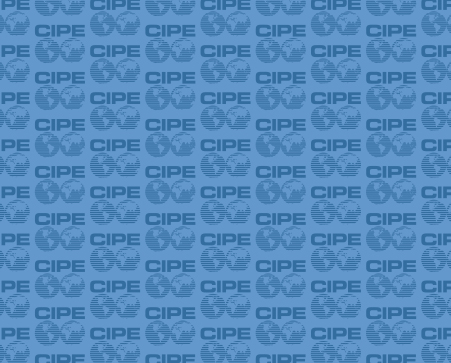
As the United States tries to consolidate a nearly seven-year nation building effort in Iraq and deepens its focus in Afghanistan, a key question remains: How do we measure nation building? A reflection on the political progress of Timor-Leste may offer some insights. Creating and sustaining national institutions in a post-conflict environment there has been inevitably challenging. But even through serious political crises and partisan bickering, Timor’s political leadership has made decisions that ultimately led to the strengthening of its national institutions. This process must continue, and needs the support of the international community.
A decade ago, I traveled to Timor-Leste for the first time. In February 2000, the country was just five months out from the August 30, 1999 referendum on independence, and the devastating violence that followed. Driving around, I could still smell the char left behind by Indonesian-supported militias as they withdrew. My notes from that time – I was conducting a program assessment on behalf of the International Republican Institute (IRI) – reflect my dismay, but also awe at the resilience and optimism of the Timorese.
“Yes, we are building everything from nothing” said one former resistance fighter, “but what we are building is ours.”
The building he was referring to was not only literal structures. The Timorese had to create institutions of governance and build understanding among citizens of what their new democracy meant. The framework of government took shape with a directly elected President and National Assembly; old political parties re-formed and new groupings were created. An energized polity took to the polls with high turnout for elections that led to full independence in 2002.
From the beginning, the new government was challenged by limited capacity and high expectations. The initial pace of economic development and job creation lagged, leading to deepening social and political tensions. Serious civil strife in 2006 and assassination attempts on the president and prime minister in 2008 tested the resilience of the Timorese and their young institutions.
Though these institutions remain intact, challenges persist. The release of militia leader Maternus Bere in August 2009 undermined respect for the rule of law. Economic growth, while an impressive 13 percent last year, currently depends on spending against the country’s petroleum fund, and starts from an extremely low base. Meanwhile, concerns about corruption have increased at all levels, though a recent report states that “petty corruption is pervasive, but not yet systemic” and that higher levels of corruption have yet to be substantiated.
None of these issues are surprising, and none need be harbingers of future trouble if the current crop of political leaders can draw from some of the lessons of the transitional period. The first key lesson is to continue to move Timor’s major political institutions away from their previously highly personalized nature. While personality politics might have helped win votes in a post-conflict environment, citizens (and donors and investors) need reassurance that the political leadership is committed to strengthen these institutions independent of the individuals that might occupy them. Important steps have already been taken: in an IRI poll conducted at the end of 2008, three-quarters of respondents said they felt the country was moving in the right direction.
Second, the role of political parties as a democratic institution needs to be urgently reinforced. As the only vehicle for the nomination of candidates for parliament, political parties must identify and articulate platforms that clearly respond to the needs of citizens. Parties should begin to look at longer term leadership development in ways that place women and youth at the forefront. An organized opposition also has an essential role: as the government plans its spending or debates decentralization, there must be a presence that monitors government activities, and offers constructive alternative solutions.
Third, the government must build confidence in the transparency and integrity of its policies and decisions. This means strictly enforcing the rule of law, supporting strong and independent media, and cracking down on those that seek to subvert due process. The recent appointment of an Anti-Corruption Commissioner is an important first step, but it must be reinforced with good will from public officials, sufficient funding, and a clear mandate to carry out its work effectively.
If one way to measure nation-building is how a young country responds to the various crises it faces, then Timor-Leste’s experience can offer a model for where the political will in transitional countries should be directed. The Timorese experience continues to evolve, and every decision made by its leaders will be critical in helping the country stabilize. To achieve this, Timor-Leste deserves good friends in the international community. As a senior leader told me during a recent visit, good friends are not the ones that pat you on the back and let your mistakes slide; good friends are the ones that work with you to identify mistakes and support you while you try to fix them.
This post is part of a series of guest posts by the International Republican Institute (IRI).
Published Date: June 09, 2010